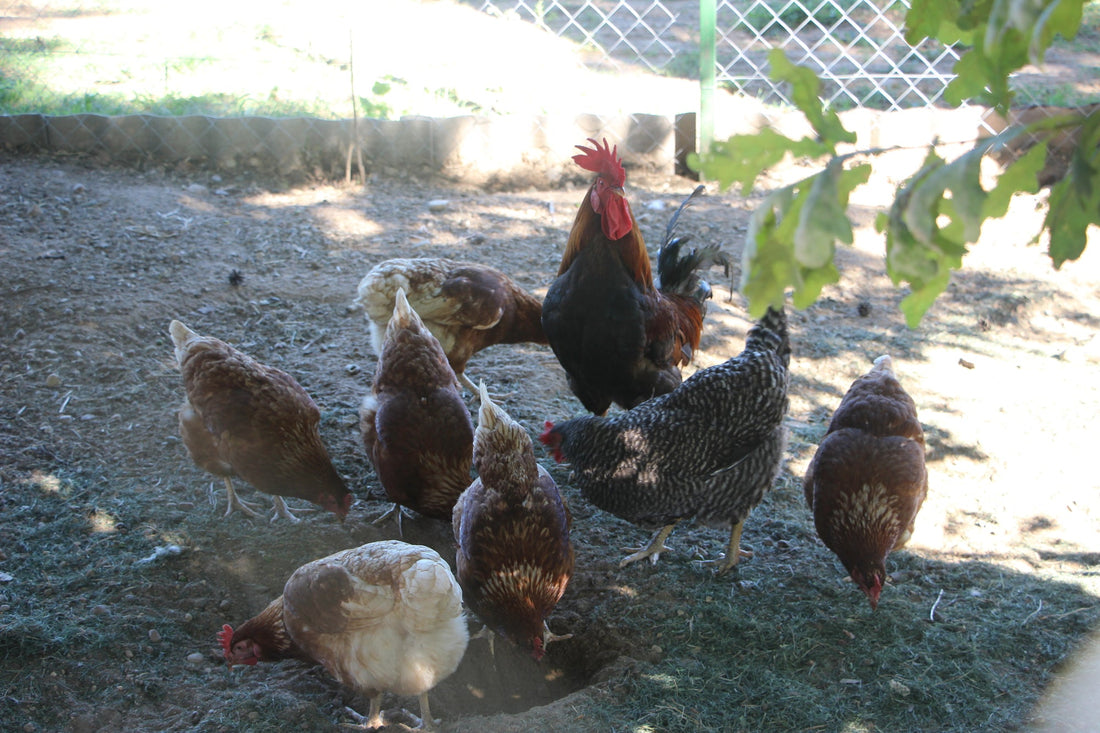Chickens are not just farmyard animals; they are creatures with complex behaviors and social structures. For those raising chickens, whether in a backyard or on a larger farm, understanding these dynamics can greatly improve the health and productivity of the flock. This article provides a deep look into chicken behavior and the intricacies of their social interactions.
The Pecking Order: Establishing Hierarchy
The social structure of a chicken flock is centered around what is known as the pecking order. This hierarchy determines access to food, nesting sites, and even grooming behavior. Higher-ranking chickens eat and drink first, while those at the bottom of the hierarchy wait their turn. Observing the establishment of this pecking order can be fascinating; it involves displays of dominance including pecking, chasing, and other physical displays.
Understanding this order is crucial because disruptions can lead to stress and aggression among chickens. When introducing new birds, for instance, the pecking order must reestablish itself, which can initially increase conflict within the group.
Communication Among Chickens
Chickens communicate through a variety of sounds and body movements. From the well-known cluck to more subtle purrs, each vocalization has a specific meaning. Alarm calls may indicate the presence of a predator, while softer clucking sounds are used between hens and their chicks or within the group to signify contentment.
Body language also plays a critical role. Postures like wing flapping, feather ruffling, and pecking at the ground can indicate everything from excitement to annoyance. Understanding these cues helps chicken keepers respond better to their flock's needs.
Foraging Behavior
Foraging is a natural and vital activity for chickens. In a free-range setting, chickens spend much of their day pecking at the ground searching for seeds, insects, and other edible items. This not only provides nutrition but also mental stimulation and physical exercise, which are essential for healthy chickens.
Providing a diverse environment with ample space can encourage natural foraging behaviors, which, in turn, can reduce stress and improve the overall health of the flock.
Nesting and Egg Laying
Nesting behavior is another critical aspect of chicken life, particularly for laying hens. Chickens prefer quiet, secure locations to lay their eggs. Lack of adequate nesting space can lead to stress and competition among hens, potentially affecting their laying patterns and the quality of eggs produced.
Properly designed nesting boxes that mimic natural conditions can greatly enhance the egg-laying process. These should be kept clean and placed in darker, quieter parts of the coop.
Broodiness and Chick Rearing
Broodiness is the instinct that drives a hen to hatch her eggs and rear chicks. Not all hens exhibit this behavior, and it can vary significantly between breeds. A broody hen will sit on her eggs consistently, only leaving briefly to eat, drink, and bathe.
Managing broodiness effectively requires understanding its triggers and symptoms. For those looking to breed chickens, encouraging broodiness in certain hens can be beneficial, whereas, in egg production settings, it might be discouraged to maintain consistent egg output.
Interaction with Humans
Chickens can develop relationships with humans. Frequent, gentle handling from a young age can help chickens become more comfortable with human interaction. This can make managing the flock easier and more enjoyable.
Conversely, chickens that are not accustomed to humans may exhibit fear or aggression. Consistent, positive interaction is key to developing a healthy relationship between chickens and their keepers.
Dealing with Aggression
Aggression within a flock can stem from various factors, including overcrowding, inadequate resources, and disruptions to the pecking order. Recognizing the signs of aggression early can help in taking corrective actions, such as reconfiguring the living space or separating aggressive birds.
Sometimes, aggression is directed towards humans. This can be managed through training and changes to the handling procedures to ensure safety for both the chickens and their keepers.
Health and Disease Management
Understanding chicken behavior is crucial for early detection of illness. Changes in behavior, such as decreased activity, changes in eating or preening habits, can be early signs of health issues.
Regular observation and familiarity with normal behavior patterns are essential. This enables prompt action, whether it’s adjusting the diet, improving living conditions, or seeking veterinary care.
Understanding the behavior and social dynamics of chickens can significantly enhance the management and enjoyment of keeping a flock. From recognizing the subtleties of chicken communication to managing the complexities of their social interactions, knowledgeable keepers can ensure their chickens lead healthy, productive lives.

